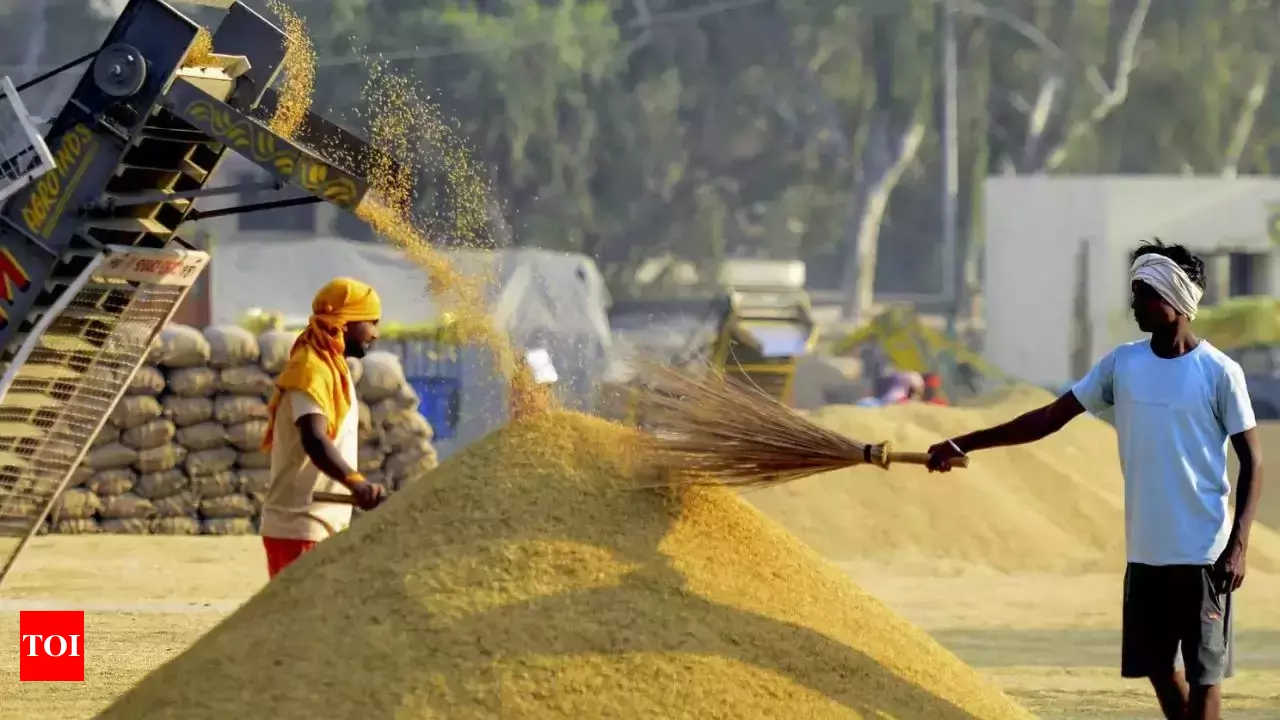9 Nov 2024, 2:10 PM The Food Corporation of India, in collaboration with state agencies, has achieved a significant milestone in Punjab by procuring 120.67 Lakh Metric Tons (LMT) of paddy during the ongoing procurement season.
This record procurement is crucial for ensuring food security in the country, as Punjab remains a key contributor to India’s grain production. The FCI, tasked with maintaining the buffer stock of essential grains, plays an instrumental role in stabilizing food supplies across the nation.
Food Corporation of India in Procurement
The Food Corporation of India (FCI) is responsible for the procurement, storage, and distribution of food grains across India, with a special focus on maintaining food security.
The FCI works closely with state agencies to collect paddy from farmers and ensure the availability of rice for government schemes such as the Public Distribution System (PDS).
This procurement process not only stabilizes the market prices but also secures the livelihoods of millions of farmers.
In Punjab, the FCI has been instrumental in the procurement of paddy, ensuring fair prices for farmers and preventing distress sales.
As the state’s agriculture largely revolves around paddy and wheat production, the success of the procurement season has a direct impact on the region’s economy.
This year, the procurement target has been surpassed, with FCI and state agencies together securing over 120.67 LMT of paddy from farmers.
Ensuring Fair Prices for Farmers in Food Corporation Of India
The paddy procurement process has been essential in ensuring that farmers receive MSP (Minimum Support Price) for their crops.
With fluctuating market prices and uncertain weather conditions, the MSP guarantees a safety net for farmers. FCI’s extensive network of procurement centers has made it easier for farmers to sell their paddy at a guaranteed price without having to rely on middlemen or risk selling below the MSP.
This season, the FCI has been working with the state agencies to streamline the procurement process. With the help of technology and efficient supply chain management, farmers have been able to sell their paddy in a timely and hassle-free manner.
The timely procurement also ensures that there is no delay in the supply chain, and rice continues to be available for government schemes aimed at providing subsidized food to vulnerable populations.
Impact on National Food Security
The 120.67 LMT of paddy procured in Punjab contributes significantly to India’s overall rice production, which is essential for meeting the demand in domestic markets and government food programs.
As one of the top producers of paddy, Punjab’s contribution ensures that the FCI can maintain a healthy stockpile of rice for distribution through the Public Distribution System (PDS) and other welfare programs.
The success of this year’s procurement in Punjab highlights the continued collaboration between the FCI and state agencies to secure the country’s food supply and provide critical support to farmers.
In addition, it underscores the importance of the FCI’s role in maintaining a balance between the interests of farmers and consumers, thus contributing to overall economic stability and food security in India.
Conclusion
The Food Corporation of India’s role in the procurement of paddy in Punjab cannot be overstated. With 120.67 LMT of paddy secured this year, FCI continues to ensure that both farmers and consumers benefit from a stable and fair food grain procurement system.
This success also highlights the ongoing efforts to strengthen India’s food security system and ensure that essential grains are available to those who need them most.





